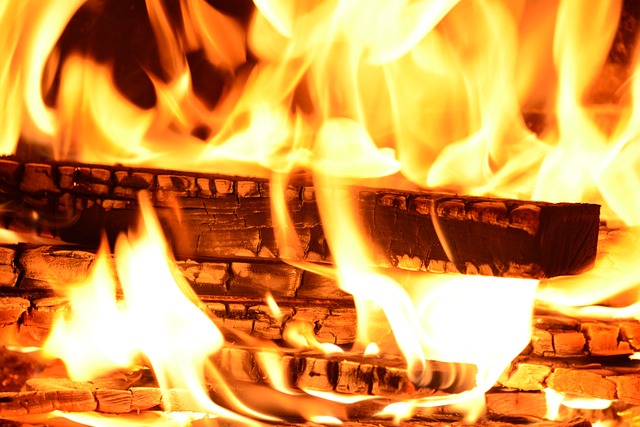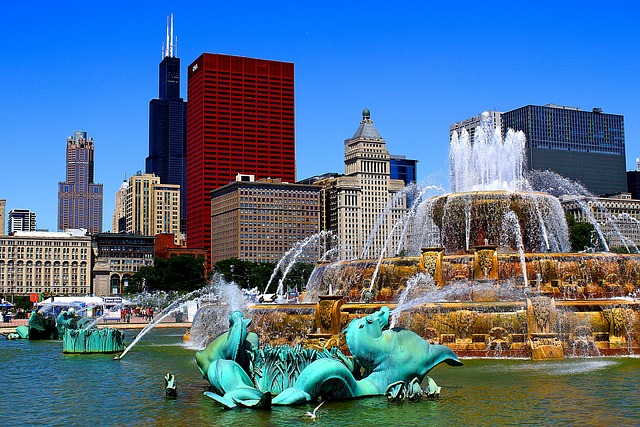In Chicago, water and fire damage restoration is crucial for homeowners aiming to sell. Quick action, including shutting off water supplies, documenting damage, and hiring professionals, mitigates costs and enhances property appeal. For water damage, this involves moisture assessment, removal of damaged materials, and specialized drying equipment; for fire damage, it's about health risk mitigation and legal disclosure. Navigating insurance claims and legalities is essential while maintaining marketability in Chicago's competitive real estate scene, especially regarding "how to sell a house with fire damage Chicago."
“In the bustling city of Chicago, water damage can strike at any time, leaving homes and properties vulnerable. Understanding the intricacies of water damage repair is crucial for both homeowners and real estate agents looking to navigate the market. This comprehensive guide delves into the common causes of water damage in Chicago, emphasizing the importance of a swift response. From immediate steps to take after a leak to navigating legal and insurance aspects post-sale, this article offers valuable insights for those affected by water damage, ensuring your Chicago property is restored efficiently.”
- Understanding Water Damage: Common Causes and Immediate Steps in Chicago
- The Importance of Quick Response in Fire and Water Damage Restoration
- Comprehensive Guide to Water Damage Repair Process in Chicago Homes
- Legal and Insurance Aspects: How to Navigate after Selling a House with Water Damage in Chicago
Understanding Water Damage: Common Causes and Immediate Steps in Chicago
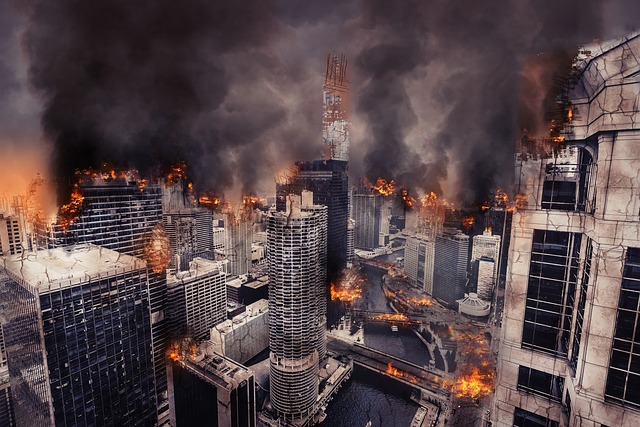
Water damage is a common issue in Chicago, often caused by severe weather conditions, burst pipes, or faulty appliances. When water intrusion occurs, it’s crucial to act quickly to minimize potential hazards and prevent further complications. In a city like Chicago, where winters can be harsh, frozen pipes are a leading cause of water damage. Homeowners should regularly insulate pipes exposed to extreme cold and consider hiring professionals for preventive maintenance.
Immediate action is vital after a water damage incident. Homeowners should turn off the main water supply to prevent further leakage, document the damage with photos, and contact reliable water damage repair services. In cases of severe flooding or fire damage, it’s essential to consult experts in Chicago who can assess the situation, remove contaminated materials, and implement effective restoration techniques to ensure a safe and speedy recovery, enhancing the likelihood of successfully selling a house affected by these issues.
The Importance of Quick Response in Fire and Water Damage Restoration
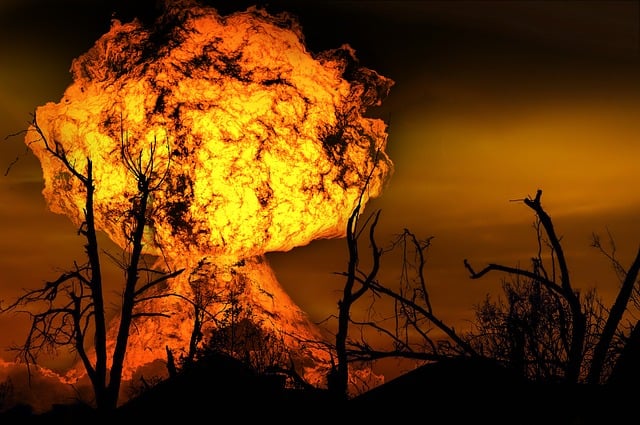
When it comes to fire and water damage restoration in Chicago, time is of the essence. A quick response can make all the difference in minimizing repair costs and restoring your home to its pre-damage condition. The longer water or flames remain untreated, the more severe the damage becomes, leading to expensive and lengthy renovation processes.
In Chicago, where real estate is competitive, understanding the urgency of fire and water damage restoration is crucial for homeowners looking to sell. Prospective buyers are often deterred by homes that have been extensively damaged by fires or floods. Therefore, a swift response from professional repair services can not only save you money on repairs but also increase your property’s appeal when it comes time to put your house on the market.
Comprehensive Guide to Water Damage Repair Process in Chicago Homes
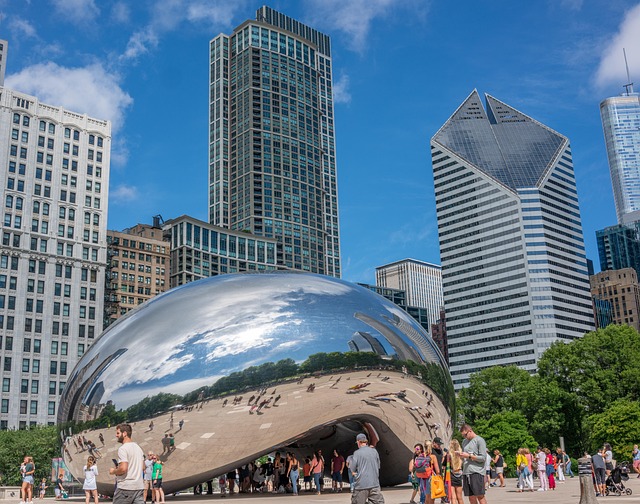
Water damage repair is a crucial process for any homeowner in Chicago, especially after floods or leaks. The first step involves assessing the extent of the damage, which can range from small patches to complete submersion. Professional water damage restoration services use advanced equipment to detect hidden moisture and ensure every inch of your home is thoroughly dried. This is essential when selling a house with fire damage in Chicago too, as it prevents further complications like mold growth or structural issues.
Once the assessment is done, experts begin the repair process by removing damaged materials, including drywall, carpeting, and furniture. They use powerful fans, dehumidifiers, and heaters to expedite drying time while applying specialized treatments to prevent mold and bacteria growth. After the affected areas are restored, a thorough cleaning ensures your home is safe and livable. Proper restoration not only saves you from potential health risks but also increases your property’s value, making it an attractive prospect for potential buyers in the competitive Chicago real estate market.
Legal and Insurance Aspects: How to Navigate after Selling a House with Water Damage in Chicago
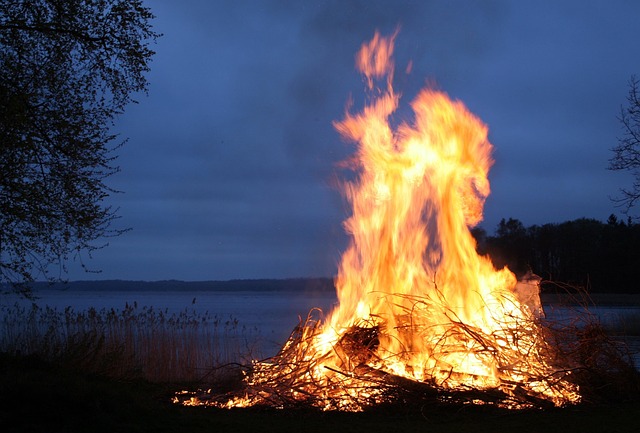
When selling a house with water damage in Chicago, understanding the legal and insurance aspects is crucial. The first step is to thoroughly document the damage – take photos and create a detailed list of affected areas and repairs needed. This not only helps in negotiations but also serves as a record for insurance claims.
In Illinois, homeowners are typically required to disclose known material defects when selling a property. Water damage should be explicitly mentioned in the disclosure statement. Insurers play a significant role in this process – they can provide guidance on what’s covered under your policy and help navigate the claim. It’s essential to cooperate with them, providing all necessary information and ensuring timely repairs to expedite the sale and avoid potential legal complications related to incomplete or improperly handled water damage repairs.
When facing water damage in Chicago, prompt action is key. Understanding the repair process and legal considerations, such as navigating insurance claims after selling a house with water damage (or fire damage, as highlighted in our guide), ensures a smooth transition. Efficient restoration services can mitigate long-term issues, enhancing the property’s value. For Chicago residents, being informed about these steps is vital to ensuring a successful recovery and a seamless experience when selling or buying a home affected by water damage.
